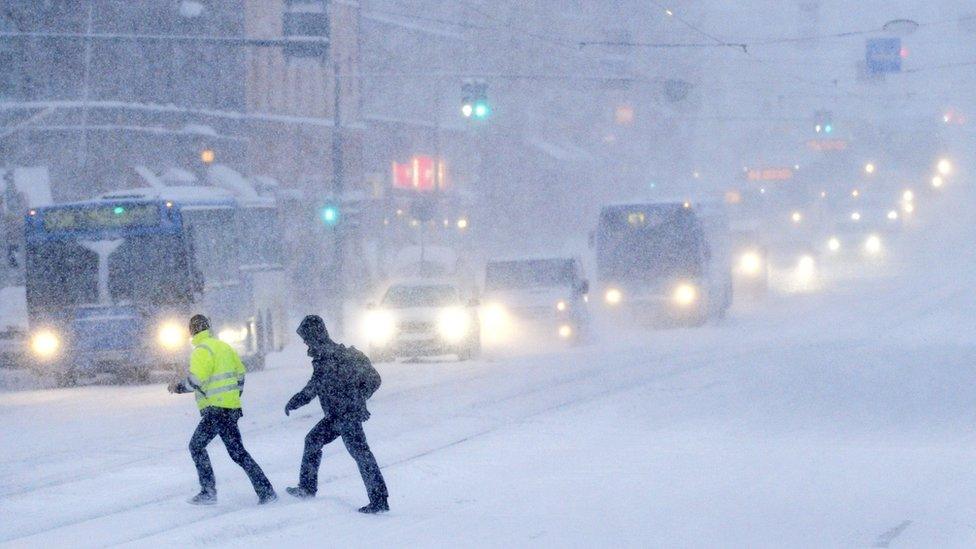Could we end homelessness in Scotland?
- Published
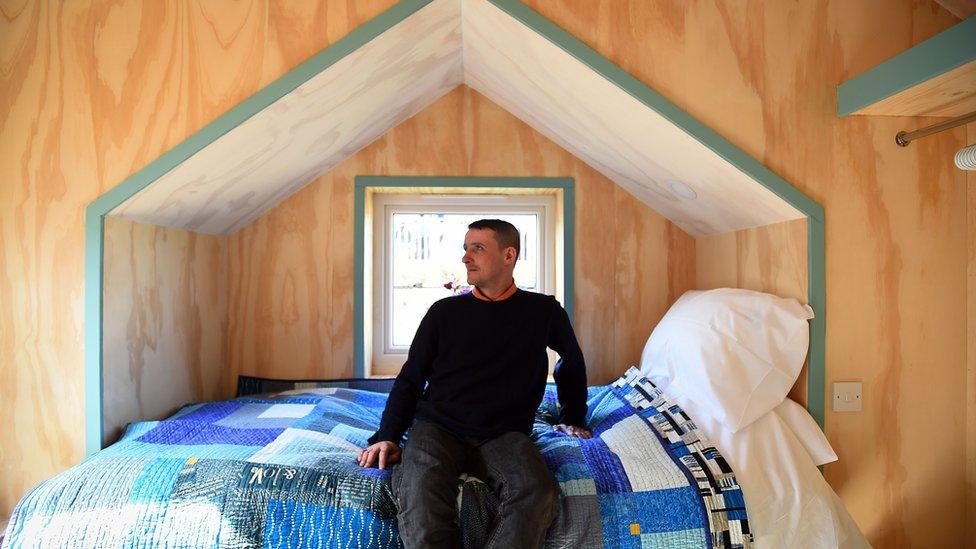
The Social Bite project has built new homes for the homeless in Edinburgh
Experts have told the BBC it is possible to end homelessness in Scotland within a decade. But how?
"If people are homeless and you give them a home, you have ended their homelessness," says Maggie Brunjes, who leads Homeless Network Scotland.
The prescription appears simple but, of course, in practice it has proved difficult to deliver.
But Ms Brunjes says the dual approach of Rapid Rehousing and Housing First have succeeded in other parts of the world and are beginning to be tried in Scotland.
The aim is to place people in permanent, stable accommodation, with the support they need, as soon as possible.
Prof Suzanne Fitzpatrick, one of the UK's foremost experts on homelessness, says not moving people on from temporary accommodation quickly enough was one of Scotland's biggest problems.
Another was a failure to tackle "avoidable homelessness", she says.
What is avoidable homelessness?
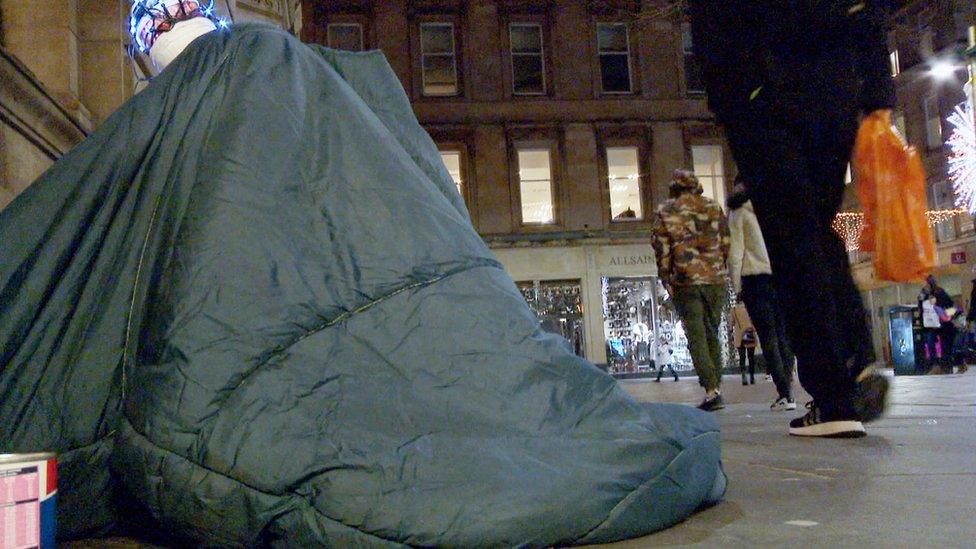
Last year 36,465 people told their Scottish local authority they were homeless.
The figure had risen slightly but is well down from the 60,000 it was in 2005.
Prof Fitzpatrick says that Scotland is doing well in many ways.
"Almost everyone who is homeless in Scotland is entitled to be rehoused by local authority. That is a right that nobody has anywhere else," she says.
But there are well-recognised "pathways" to homelessness and there is not enough early intervention, Prof Fitzpatrick says.
These pathways include:
young people being asked to leave the family home
relationship breakdown
violent domestic household dispute
rent arrears
a dispute with their landlord
leaving prison/hospital/care or some other institution
Early action to help in these situations could drastically cut homelessness, she says.
What is the problem with temporary accommodation?
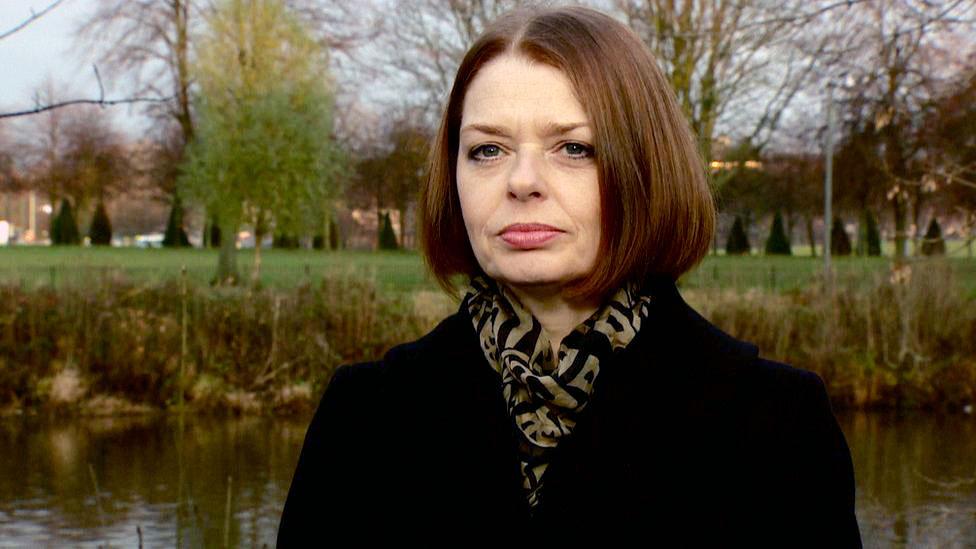
Prof Suzanne Fitzpatrick is a leading expert on homelessness in the UK
Homeless people want the security and normality of a house, Ms Brunjes says.
When they apply for homelessness support, too many are being placed in the "limbo" of temporary accommodation.
Prof Fitzpatrick, from Heriot Watt University, says Scotland usually acts in a robust way to prevent people in crisis finding themselves on the streets.
But she says there are very high levels of temporary accommodation and Scotland is not good at moving people out of it.
Rapid Rehousing is an approach that seeks to reduce the time spent in the "safety net" of temporary accommodation and move to a default position where they are offered settled, mainstream housing as quickly as possible.
People with complex needs such as mental health problems or drug and alcohol dependency are often stuck in hostels or B&Bs because until their issues are dealt with.
Another scheme called Housing First could help with this, says Prof Fitzpatrick.
What is Housing First?
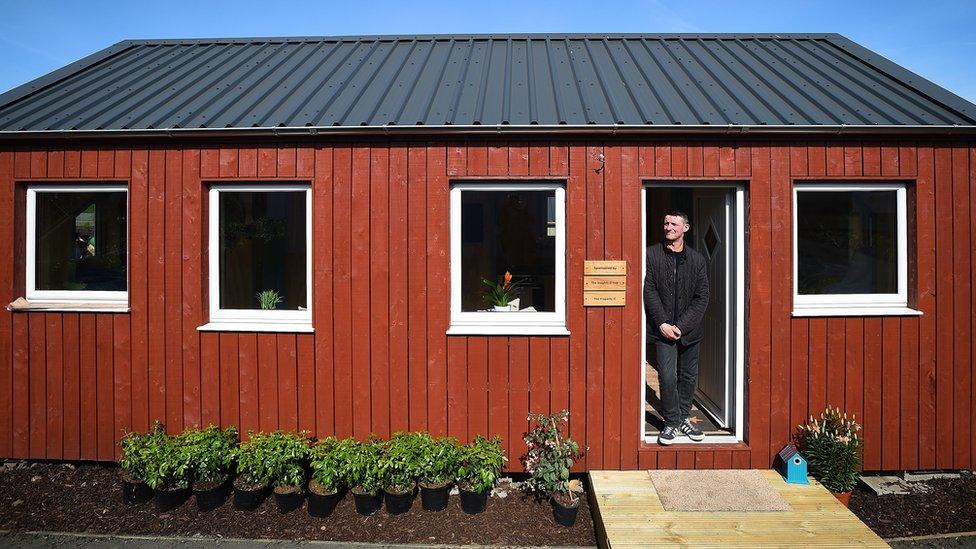
The Social Bite village was launched in May 2018
It is based on the principle that everybody needs a home, especially those living chaotic lives.
But Housing First recognises that wraparound support for issues such as drug dependency and mental health problems is required as well as the new home.
It began in New York, where a psychiatrist conducted an experiment to see if the outcomes would be better than trying to treat addictions before offering a settled home.
It has been taken up in countries such as Finland and Denmark and there are now pilot schemes operating in Scotland.
Prof Fitzpatrick says that wherever it has been tried it is found to be better than the alternative model.
"The evidence base for Housing First is absolutely overwhelming," she says. "Out of all the initiatives in the homelessness world it is the one by far with the strongest evidence base."
Scotland took it first steps towards this model earlier this year.

'This is the foundation for the rest of my life'
'I slept in the daytime because it was safer'
When Christopher Middlemass was chosen for the Housing First trial he immediately wanted to do it.
The 39-year-old, from Edinburgh, says he has "bounced about" different properties for a decade since he was thrown out of his council flat.
He had lived in the flat since he was "put out" by his mother as an "aggressive young teenager".
Although he had used drugs since he was 11, it was taking to heroin in his 20s that led to an addiction that he could no longer control.
"I had a lot of trauma from my youth," he says. "I was trying to blank it all out by getting blitzed on drugs and alcohol. The biggest mistake ever was when I picked up heroin when I was about 26.
"I was a grown man - I could make my own decisions and I made a bad decision. It ruined my life."
His addiction led him to lose his property and ended up sofa-surfing or staying in the houses of strangers he was taking drugs with.
He also had a spell of sleeping rough as well as homeless hostels.
Christopher now says his biggest mistake was not engaging with services that were there to help him.
He had what he calls "Ostrich syndrome" where he buried his head in the sand and thought his problems would go away.
Housing First has given him a flat despite him still dealing with drug and mental health issues.
He also has support dealing with budgeting, running his house and "normal" every day tasks that he has not done for years.
"It's a completely new start for me and I feel like I'm reborn," he says.
"This is the foundation for the rest of my life."

Why has Housing First not been done before?
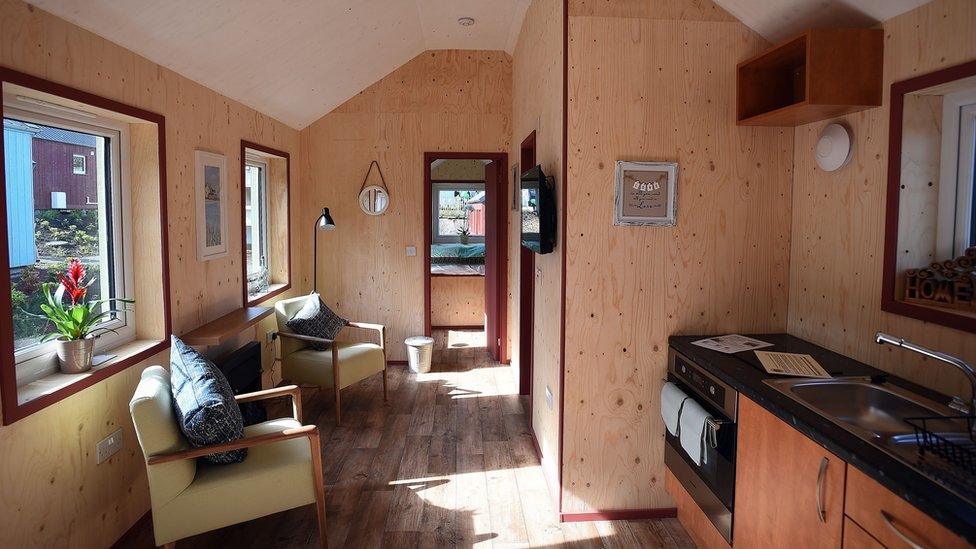
The interior of a new home for the homeless
"The intuitive sense is that you help people stabilise their life and then you offer them a tenancy," Prof Fitzpatrick says.
"It feels like you are setting people up to fail if you put them into housing when they have still got very severe alcohol or drug misuse issues or severe psychiatric problems."
However, a strong body of evidence shows that with the right support, nine out of 10 people manage to maintain their tenancies.
"It is actually what homeless people have been telling us forever," she says. "It turns out when we did the proper scientific analysis of this, they are right."
And according to Ms Brunjes, offering permanent housing is cheaper than expensive temporary accommodation such as B&Bs.
The "better outcomes" of Housing First also mean other costs are lowered.
Is there enough housing?
No, according to Gordon Macrae from Shelter Scotland.
"The last best estimate for how many social homes we need in Scotland was 60,000 and that was a number of years ago," he says.
"All the great work that Housing First and other interventions can bring will be completely undermined if we don't continue to build the homes that we need."
Prof Fitzpatrick said there were issues around the number and types of social housing available, especially in Edinburgh and the Lothians.
But she said the situation in Scotland was not as difficult as in England.
- Published18 December 2019
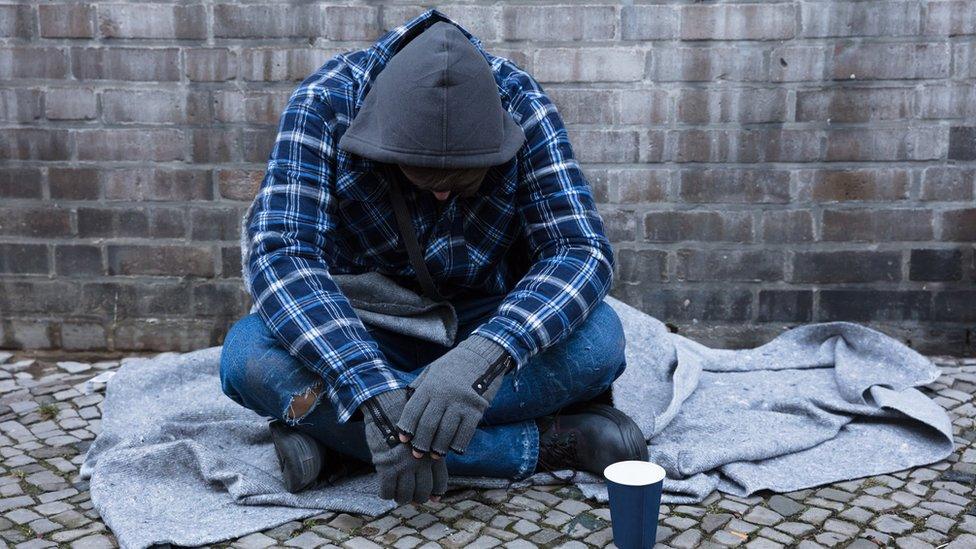
- Published8 September 2019
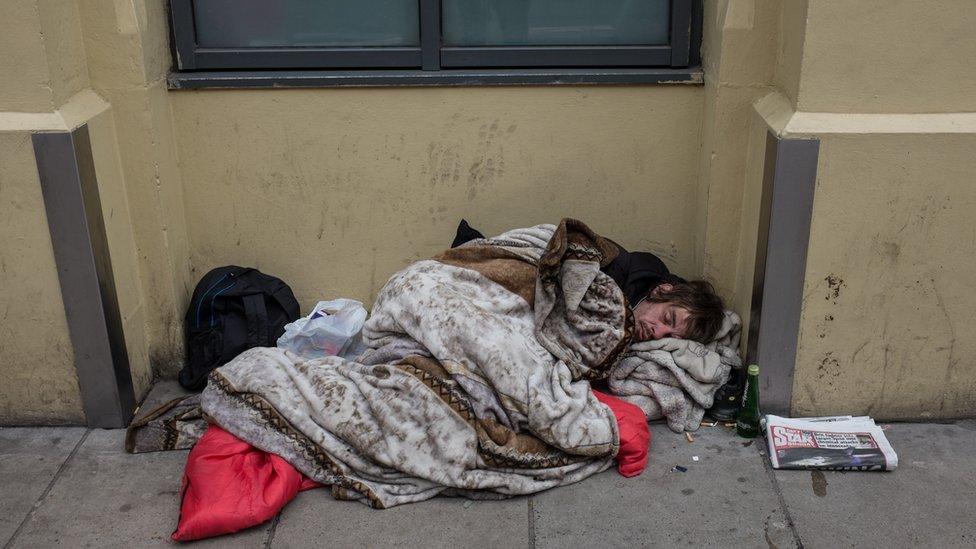
- Published26 June 2019
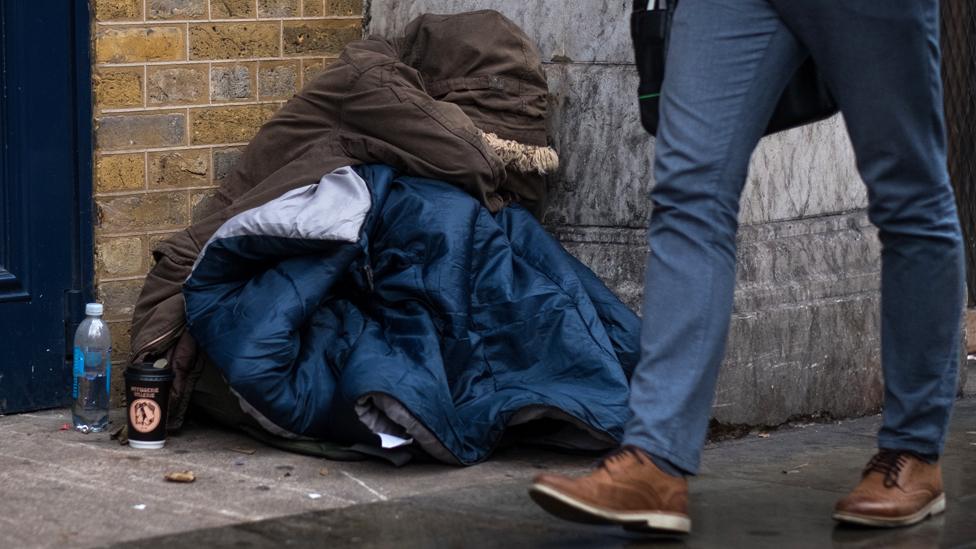
- Published2 October 2019
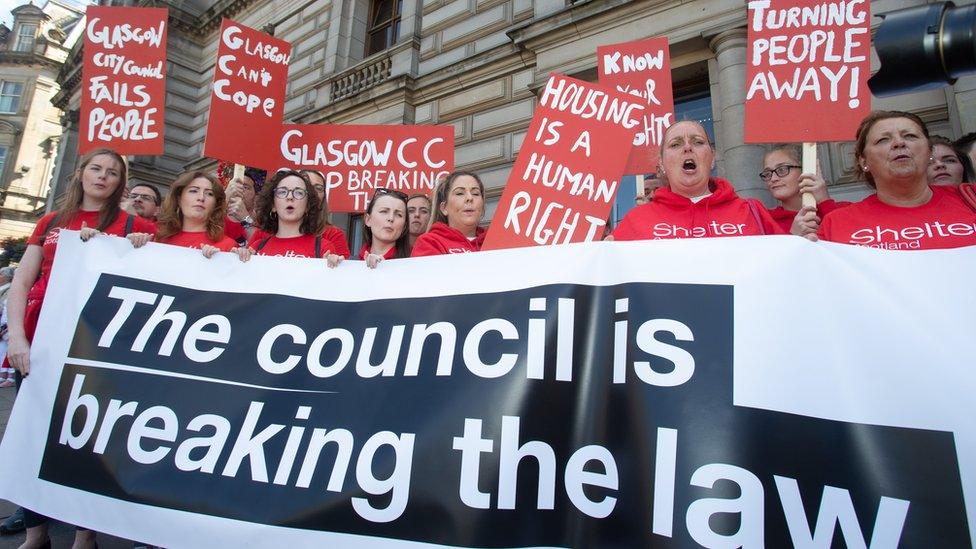
- Published31 January 2019
